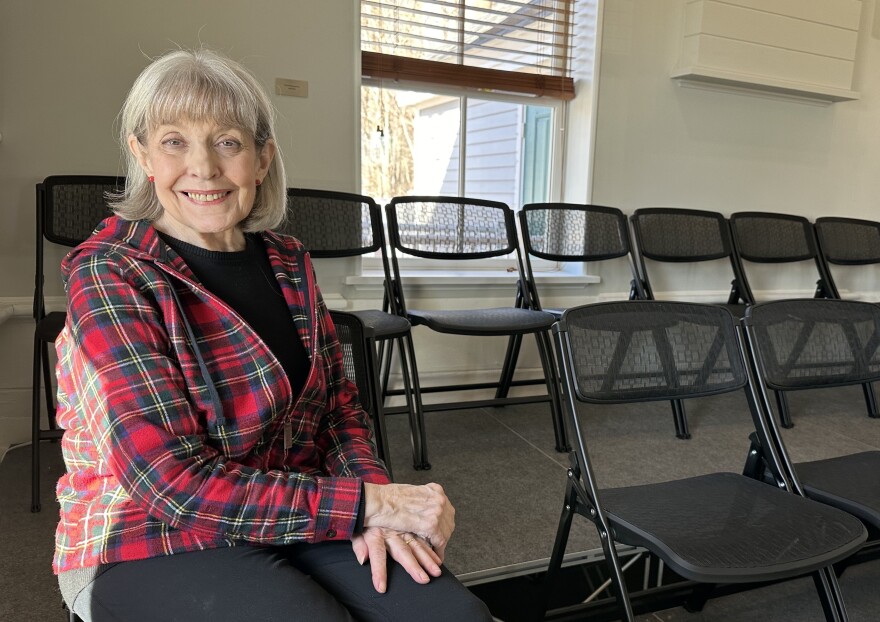State lawmakers are considering a bill that would legalize medical aid in dying in New Hampshire. The End of Life Operations Act would allow some terminally ill patients to request medication to hasten their death.
The procedure is legal in 10 other states, including Vermont and Maine. A coalition that includes the New Hampshire Hospital Association, disability rights advocates and other groups is opposing the bill saying it could normalize suicide.
Marguerite Mathews lives in Durham and was recently diagnosed with terminal lung cancer. She supports the bill and medical aid in dying here in New Hampshire.
NHPR’s All Things Considered host Julia Furukawa spoke with Matthews at her studio in Portsmouth.
Transcript
How did your advocacy for medical aid in dying start?
Well, it started when I got a diagnosis, which is life ending and that I have a limited amount of time. I was aware that Vermont, right next door to us, had made medical aid in dying available to out of state people. And I thought, well, that's all right. I'll just go there. It turns out it's very complicated if you're not a resident. [It’s] very difficult to accomplish everything in terms of finding a doctor, two doctors, actually, who will deal with this situation for you. And then also, they really don't have an infrastructure built for a place where you can go. So I found out about this effort to try and pass this bill, this legislation, here in New Hampshire. And I immediately said, I'm all for this. I'm going to do everything I can with whatever time I have left to try and make this available, not only to myself, but to many other people here in the state.
And my understanding is that you were in the know about this, either working on it or aware of it, for quite a number of years now?
Oh yes. And even when I was in my 20s, I've always been an advocate of this point of view. I'm old enough now to have seen many people who have had a very difficult passage, who have really had an enormous amount of distress for their families in a way that I feel is unnecessary. It could have been something that was peaceful instead of something that was traumatic. And this is a way that they can have some sense of how it's going to happen. It's not as though it's not going to happen otherwise. So this is all for people who already have a diagnosis of less than six months to live. And this then gives them an opportunity to consider how they would like that to happen, where they would like that to happen, who they would like to have with them when it happens.
When it comes to those who might be in opposition to this, they might say there are other options for end of life like hospice care. One could go to palliative care. Why might those options not be the right choice for some people?
For some people, they are the right choice. But it’s a matter of choice. I looked into if I were to check into a hospice locally for a month. Say, I knew that it was very close to the end and I just wanted to have hospice care. In a clinical setting, it would be $28,000 for me to be at a hospice here on the Seacoast. And that would be just impossible for a lot of families.
There's concern that has been expressed about perhaps people who are suffering dementia or not entirely aware of what's going on might start what they call a slippery slope towards ending their lives. But [there’s] lots of protections in place in the legislation to avoid that.
What will this mean for you if this passes?
That I can relax. I can craft my passing. So I can decide what music is going to be on, where I'm going to be. Will I be outside on my back porch? Will I be in my bedroom? I will have choice of who's going to be with me when it happens. I will be not in pain, and it will be something that is natural, that happens to everyone, that happens to everything that exists. And I think that we need to make people able to make the choice to do it in that kind of a conscious way.
If you or a loved one is in crisis, contact the 988 suicide and crisis lifeline for help. To speak with a trained listener, call or text 988.









